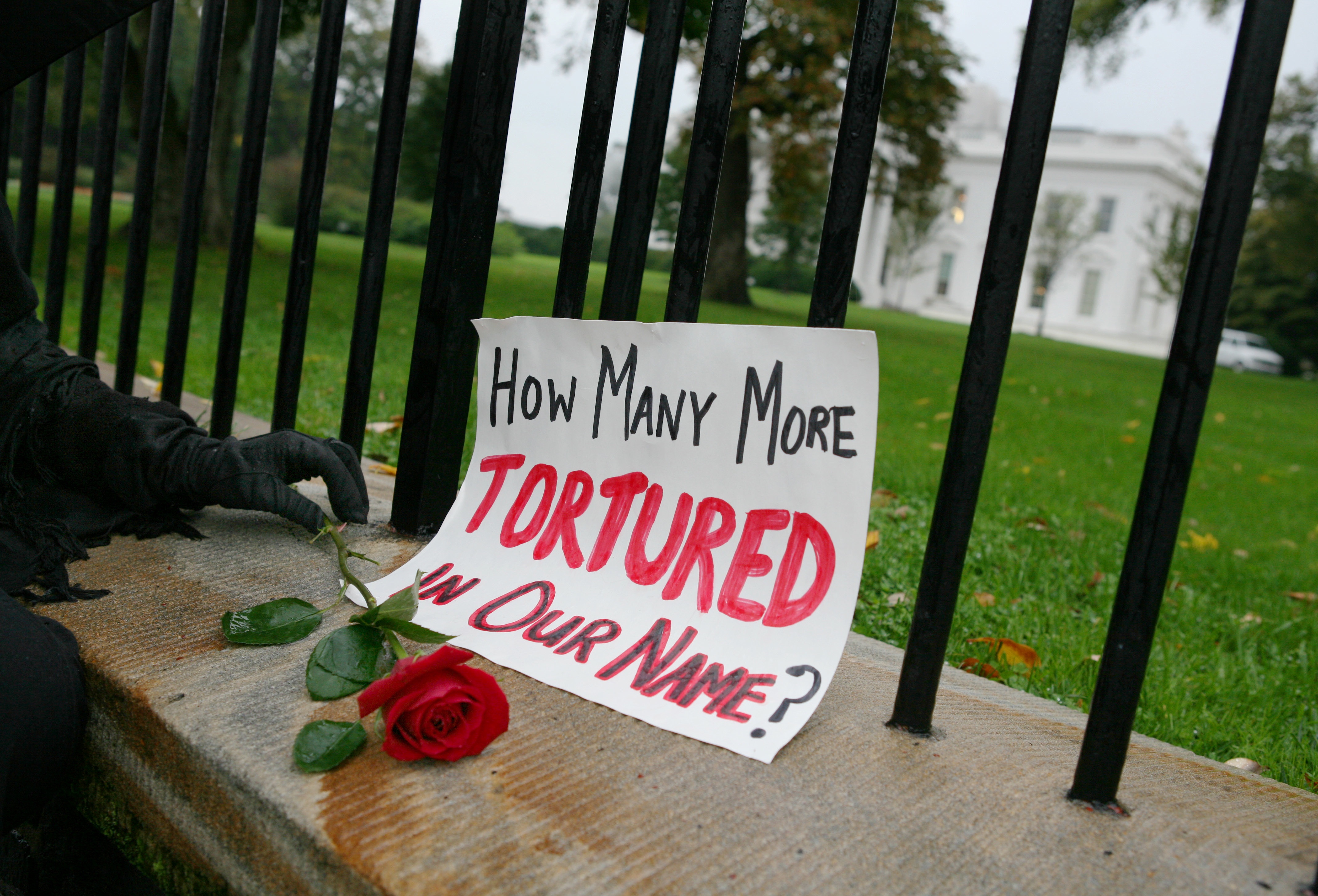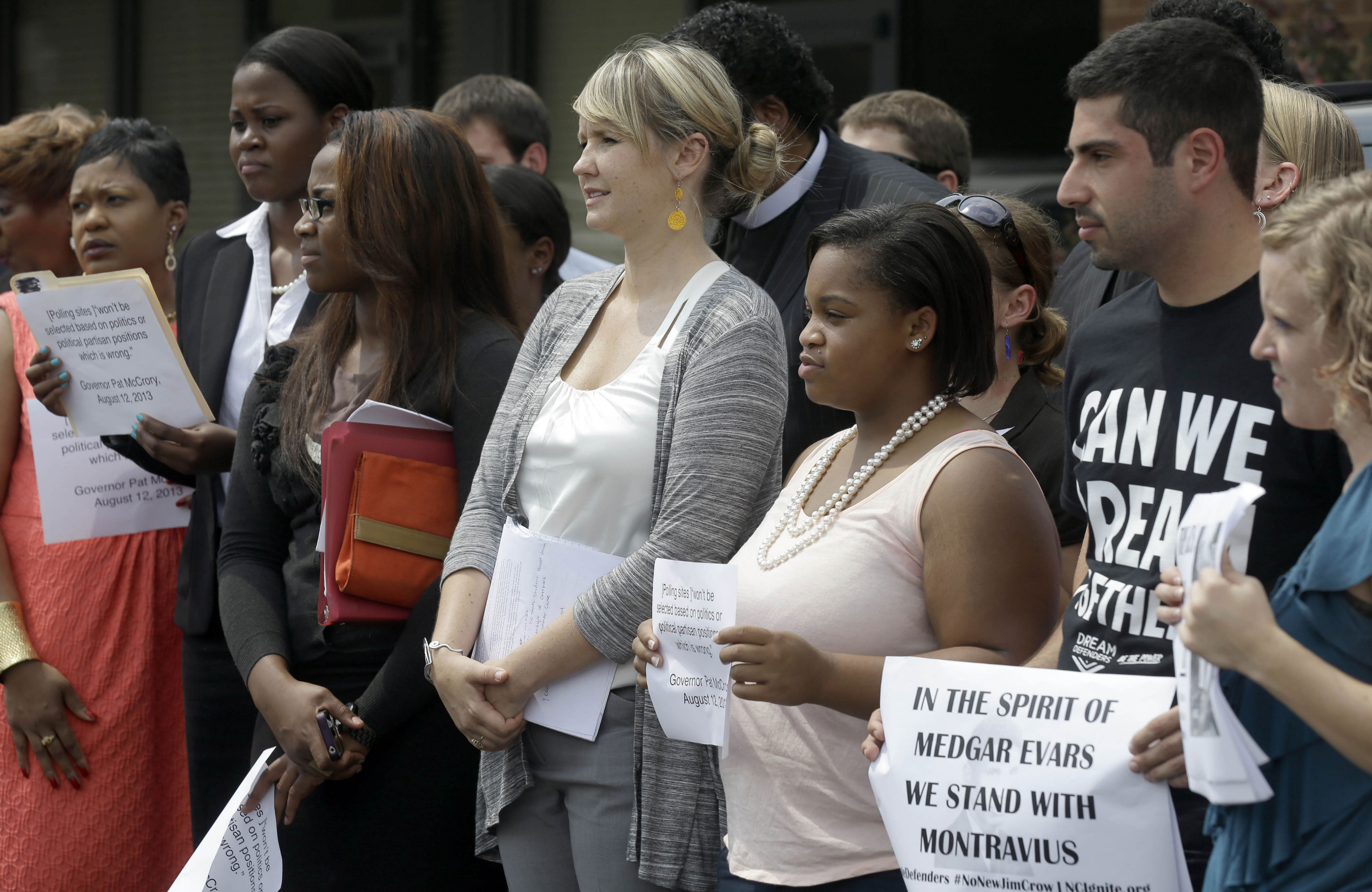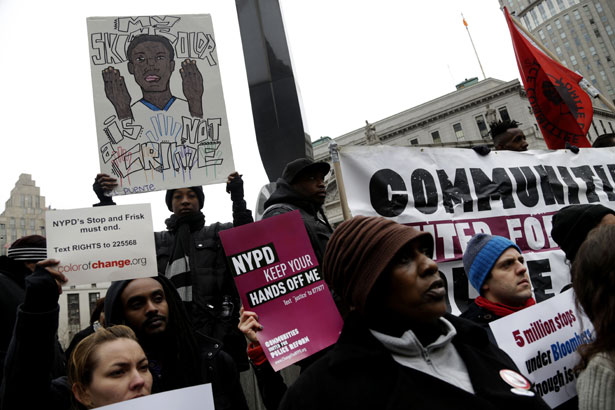
The Terrorism That Torture Didn’t Stop The Terrorism That Torture Didn’t Stop
Supporters of “enhanced interrogation” tout dubious claims of its effectiveness but ignore two cases where it failed to thwart terrorism.
Nov 7, 2013 / Katherine Hawkins

Voter Suppression Backfires in North Carolina, Spreads in Texas Voter Suppression Backfires in North Carolina, Spreads in Texas
Efforts to restrict student voting failed in North Carolina, but voter suppression attempts accelerated in Texas during the last election.
Nov 7, 2013 / Ari Berman
Censored in Colorado Censored in Colorado
America After 9/11 Since 9/11, the Department of Justice has prosecuted more than 500 terrorism cases, yet there remains scant public understanding of what these federal cases have actually looked like and the impact they have had on communities and families. Published by The Nation in collaboration with Educators for Civil Liberties, the America After 9/11 series features contributions from scholars, researchers and advocates to provide a systematic look at the patterns of civil rights abuses in the United States’ domestic “war on terror.” * * * This fall, The Nation introduced a new series of articles on “America After 9/11,” the first of which described the pattern of rights abuses in federal terrorism prosecutions and conditions at the nation’s only federal supermax prison, ADX, in Florence, Colorado. The piece described the case of Fahad Hashmi, a former student of mine at Brooklyn College. Fahad had been charged with providing material support for terrorism after he let a friend use his cellphone and stay in his London apartment with luggage containing raincoats, ponchos and socks that the friend later took to an Al Qaeda leader in Pakistan. After three years in pre-trial solitary confinement at the Metropolitan Correctional Center in Manhattan, Fahad pleaded guilty and was transferred to ADX to serve his fifteen-year sentence. Fahad has been at ADX for more than three years. He has subscriptions to The Nation and The New York Times, paid for by his family. But the prison refused to allow him to have the Nation issue that contained my piece. Last year, a piece in the Times titled “Fighting a Drawn-Out Battle Against Solitary Confinement” was also banned. Opened in 1994 as a behavioral management unit, ADX officially houses the most dangerous prisoners in the federal system. Since 9/11, however, any sort of terrorism conviction can land a person there. Once incarcerated at ADX, there is little effective recourse for challenge. Today, ADX disproportionately houses Muslims. Please support our journalism. Get a digital subscription for just $9.50! In “general population,” prisoners spend twenty-three hours a day in cells that measure eighty-seven square feet. Prisoners eat meals alone, within arm’s reach of their toilet. ADX offers TV “classes,” which count toward good behavior. One is “The Magic of Everyday Communication.” The perverse cruelty of teaching face-to-face communication to people enduring years of solitary confinement boggles the mind. ADX walls itself off from public scrutiny. It has allowed only one visit by human rights groups in twenty years, denied visitation requests from two UN special rapporteurs on torture and turned down nearly all press requests. (One monitored media event occurred in 2007.) With little access for journalists or human rights groups, ADX has a formidable wall of silence around it. The banning of reading material that dares to describe the nature of Fahad’s confinement is a reminder of the repressive conditions that prisoners on US soil continue to face. More in the ‘America After 9/11’ Series: How Tarek Mehanna Went to Prison for a Thought Crime As the government embraces a “counter-radicalization” approach to counterterrorism, prosecutors are turning radical beliefs into criminal acts. by Amna Akbar Guantánamo in New York City Americans remain mostly blind to the abusive treatment of terror suspects on US soil. by Jeanne Theoharis Where’s the Outrage When the FBI Targets Muslims? The FBI employs the same repressive tactics as the NYPD in its broad surveillance of Muslim communities. Why does the FBI get a pass? by Diala Shamas How Mohammed Warsame Became an Accidental ‘Terrorist’ In the wake of 9/11, prosecutors have embraced “special administrative measures” to keep terrorism suspects guilty until proven otherwise. by David Thomas
Nov 6, 2013 / Jeanne Theoharis

Border Patrol Will Continue Using Lethal Force on Rock-Throwers Border Patrol Will Continue Using Lethal Force on Rock-Throwers
A decision by US Border Patrol this week “effectively gives a license to kill Latinos on both sides of the border,” according to activists.
Nov 6, 2013 / George Zornick

Boxed In: How a Criminal Record Keeps You Unemployed For Life Boxed In: How a Criminal Record Keeps You Unemployed For Life
People like Luis Rivera are being locked out of the formal workforce forever thanks to one youthful mistake.
Nov 6, 2013 / Feature / Kai Wright

Will ENDA Be the Next Casualty of the GOP’s Internal Crisis? Will ENDA Be the Next Casualty of the GOP’s Internal Crisis?
Dim prospects for the Employment Non-Discrimination Act in the House illustrate how far right of the American mainstream the GOP has drifted.
Nov 5, 2013 / Zoë Carpenter

‘After Tiller’: The Abortions No One Wants To Talk About ‘After Tiller’: The Abortions No One Wants To Talk About
The acclaimed documentary turns an compassionate lens on a complicated, multi-faceted issue.
Nov 5, 2013 / Laura Flanders

VIDEO: Why This Company Wants You in Prison VIDEO: Why This Company Wants You in Prison
It has something to do with the $1.7 billion they made off the privatized incarceration industry just last year.
Nov 5, 2013 / Jesse Lava and Sarah Solon

Kelly Protestors Empowered the Voiceless Kelly Protestors Empowered the Voiceless
Civility that comes at the expense of further marginalizing the subjugated is not only worthless, but also criminally dishonest.
Nov 4, 2013 / StudentNation / Casey Gordon and StudentNation

